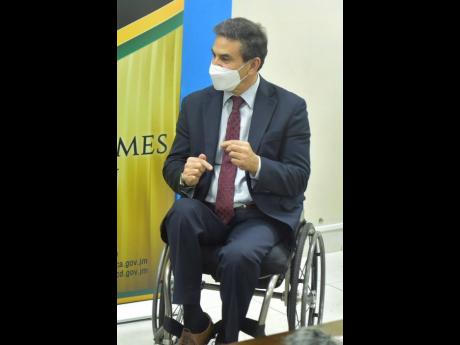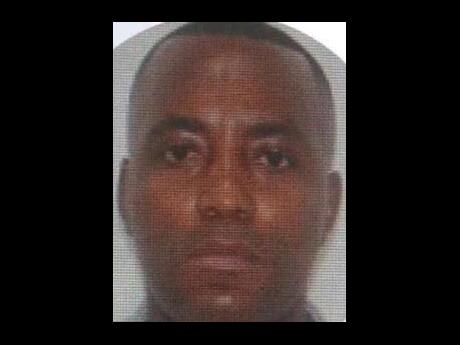Legal showdown
Haiti steps up pressure to extradite Colombian suspect in president’s assassination
Haiti has escalated the diplomatic pressure to get custody of suspected Colombian assassin Mario Antonio Palacios Palacios, turning to an 19th century legislation to compel Jamaica to hand him over, new court documents have revealed. An imperial...
Haiti has escalated the diplomatic pressure to get custody of suspected Colombian assassin Mario Antonio Palacios Palacios, turning to an 19th century legislation to compel Jamaica to hand him over, new court documents have revealed.
An imperial treaty enacted in 1874 between Haiti, the United Kingdom and Ireland was cited by Haitian authorities as the legal basis for a second request dispatched to Jamaica on Wednesday for Palacios’ “extradition”.
But Carolyn Cameron, QC, an attorney for Palacios, has taken issue with the legislation, describing it as obsolete.
“This law is no longer relevant,” said Cameron, arguing that it has been “overtaken” by the Committal Proceedings Act.
A 1973 extradition-related convention was also invoked by Haiti in their renewed attempt to get custody of Palacios, the former Colombian military officer described as a key suspect in the assassination of Haitian President Jovenel Moise on July 7.
The first extradition request from Haiti was submitted on October 21, but dismissed seven days later because it did not “satisfy” the legal requirements under Jamaica’s Extradition Act.
Jamaica does not have an extradition treaty with Haiti.
But the court documents, which formed part of a surprise Christmas Eve application in the Supreme Court that sought Palacios’ immediate release, provide a glimpse into the emerging diplomatic impasse.
Amid a worldwide manhunt, Palacios was captured at a guest house in central Jamaica on October 8. It is unclear when he entered the island.
A week later, he pleaded guilty to illegal entry and opted to spend five days in prison because he was unable to pay the $8,000 fine.
‘IN VERY GOOD SHAPE’
But, for a little more than two months, Palacios has been kept in isolation at the high-security Horizon Adult Correctional Centre in St Andrew, according to court documents and the top Colombian diplomat in Jamaica.
“He is in very good shape,” Colombian Ambassador to Jamaica Jairo Clopatofsky Ghisays told The Sunday Gleaner in the first public update on Palacios’ condition.
He disclosed that the jailed suspect, with authorisation from prison authorities, has had “two or three” telephone conversations with family members back in his homeland, and has indicated that he wants to be sent there.
“It is important to him to be in Colombia,” said the ambassador.
The envoy disclosed that the Colombian embassy and the Colombian consulate recently dispatched two “important” diplomatic notes to the Jamaican Government “about the situation”.
“We are waiting for the answer from the Jamaican Government,” he said.
Jamaica’s Foreign Ministry told The Sunday Gleaner last month that duelling documents submitted by Haiti and Colombia had been sent to various government ministries, departments and agencies for “legal consideration”.
However, the ministry has not responded to questions emailed on December 10 seeking an update on those discussions.
NO LEGAL FOUNDATION
Cameron called Palacios’ continued detention unlawful and used last Friday’s habeas corpus application to nudge the Jamaican Supreme Court to order his release.
The case was adjourned until Friday without a decision.
The attorney noted that her client’s five-day sentence expired on October 21, and questioned the legal basis for his continued detention.
She indicated, too, that the Colombian embassy here has prepared temporary travel documents that would enable her client to travel to Colombia.
“Since then, he has been sitting waiting for a deportation or repatriation, but nothing has happened,” she complained.
But, in opposing Palacios’ release, Tamara Dickens, an attorney for the Jamaican Government, cited an affidavit by chief prosecutor Paula Llewellyn which indicated that Haiti’s second extradition request included an arrest warrant and relied on the 19th century law, as well as the 1973 Convention on the Prevention of Punishment of Crimes against Internationally Protected Persons.
The Office of the Director of Public Prosecutions is Jamaica’s designated central authority in extradition cases.
Llewellyn, the director of public prosecutions, asserted that, under the convention, she was obliged to consider the extradition request, even in the absence of a direct treaty between Jamaica and Haiti.
But Cameron insisted that the 1874 treaty, under which the arrest warrant was issued, “has nothing to do with the situation with which we are here concerning”.
“So, Horizon is purporting to hold Senor Palacios on the basis of a warrant which has no legal foundation,” she said, making reference to the high-security prison.
Palacios has been accused by Haitian authorities of being among 26 Colombian mercenaries who stormed Moise’s private residence on July 7 this year, shot him to death, and injured his wife Martine.
Forty-four other suspects, including three Haitian-Americans who resided in South Florida in the United States and members of the former president’s security detail, are already in the custody of Haitian authorities.


